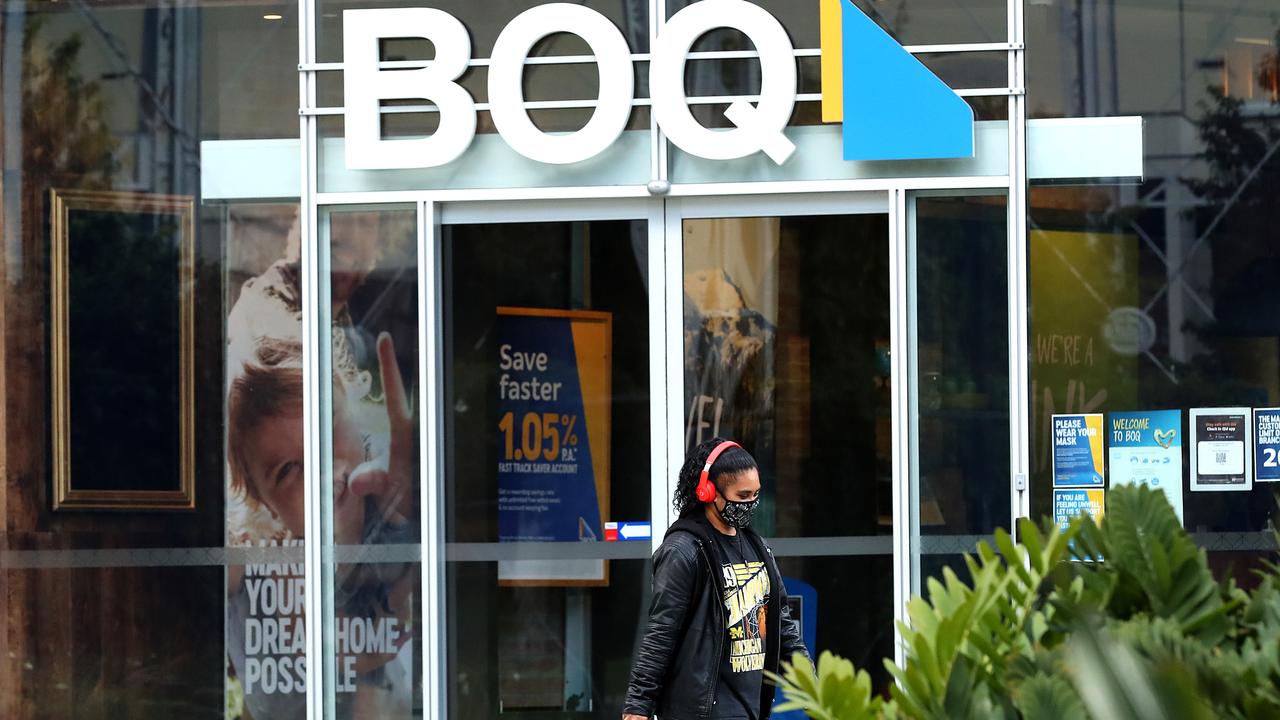BOQ named and shamed for continuing to charge fees against dead customers’ accounts
BOQ is the latest to be exposed for charging fees against the accounts of dead customers and now it will be up to regulators such as ASIC to decide whether a financial penalty is warranted.

The banking watchdog has named and shamed Bank of Queensland for charging the accounts of dead customers fees over a four-year period.
The Banking Code Compliance Committee said BOQ and its subsidiary brands, BOQ Specialist and Virgin Money Australia, failed to stop or refund more than 2500 instances of fees and interest that were incorrectly charged to the estates of deceased customers between 2019 and 2023.
In total, BOQ charged $158,834 in fees and interest to the estates of dead customers over the four-year period.
BCCC chair Ian Govey said the decision to name BOQ reflected the severity and systemic nature of the compliance failings.
“We expect banks to take swift and effective action to address noncompliance and prevent further harm to customers. BOQ’s deficiencies and inadequate response fell below our expectations,” Mr Govey said.
While the sanction does not carry any financial penalty against the bank, the Australian Securities and Investments Commission or other regulators can choose to take further action against banks for breaches of the code should they deem it warranted.
The bank’s breaches were compounded by its delays in identifying and addressing underlying issues, the BCCC said.
The bank completed an internal audit in September 2022, at the request of the BCCC, which revealed significant weaknesses in its systems, controls and processes for managing deceased estates.
BOQ introduced some improvements in late 2021, but it failed to apply them consistently and address the underlying causes, the watchdog found.
“BOQ’s response to its breaches lacked urgency. It took far too long to implement effective measures to address the root causes and to prevent recurrence,” Mr Govey said.
“Banks must ensure their compliance frameworks are strong and appropriate for the complexity of their operations,” Mr. Govey said. “This is vital for upholding the commitments in the banking code and minimising poor outcomes for customers.”
The bank began remediating affected estates in 2022 and closed the remediation program last year, a spokesman said.
The BCCC’s investigation into BOQ’s breaches was part of a broader focus on banks’ obligations to deceased estates.
A 2023 investigation by the watchdog found instances of fees being charged on deceased estates by six of the nation’s banks.
It commenced investigations into three of the six lenders.
In July 2024, ANZ was sanctioned for failing to stop or refund fees to deceased estates between 2019 and 2023, as well as not responding to representatives of deceased estates within the required 14 days.
As part of its remediation, ANZ agreed to pay a total $3.25m to 18,852 impacted estates. The figure includes estimated “time value of money” payments of $390,000.
In December, sources told The Australian the Australian Securities and Investments Commission was actively considering launching enforcement action against ANZ over the latest fee scandal.
The latest regulatory probe into the bank comes after it endured a horror 2024 marred by investigations into irregular trading ahead of a $14bn government bond issuance. The bank’s chief executive, Shayne Elliott, in December confirmed he would leave by mid-2025. Former HSBC executive Nuno Matos has been named as his replacement.
The fees slugged to dead customers are reminiscent of some of the worst bank behaviour unearthed by the Kenneth Hayne-led royal commission into financial services in 2018, which included Commonwealth Bank and AMP charging thousands of dead customers fees over a period of years.
More Coverage
Originally published as BOQ named and shamed for continuing to charge fees against dead customers’ accounts





